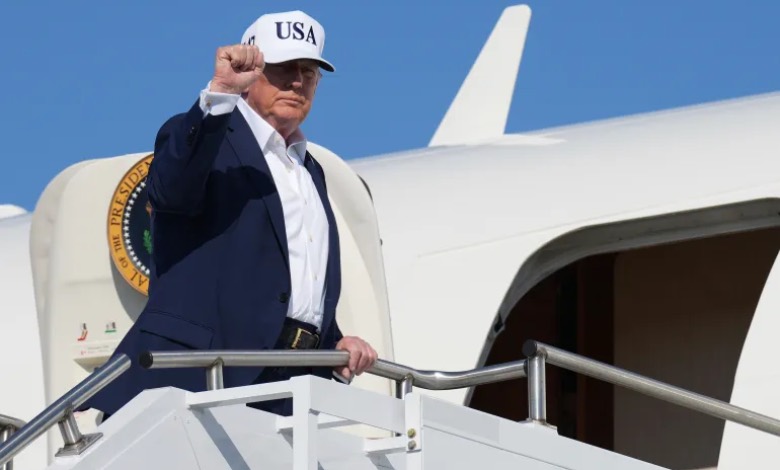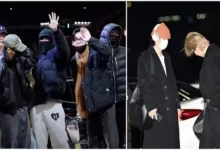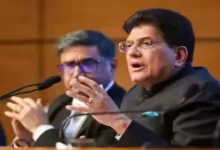illegal migrants to US, including from India, take note: Trump could send you to… West Africa

Washington D.C. : U.S. President Donald Trump met with leaders from several African nations on Wednesday, pressing them to accept illegal migrants and asylum seekers deported from the U.S., according to a Wall Street Journal report. The State Department simultaneously sent proposals to countries, primarily in West Africa, asking them to host deportees whose home nations are slow or unwilling to take them back. This follows past instances where over 100 Indian migrants were sent to third countries like Panama for processing before repatriation to India.
At a White House summit with leaders from Liberia, Senegal, Mauritania, Gabon, and Guinea-Bissau, Trump emphasized curbing visa overstays and advancing “safe third country agreements.” He also discussed trade, development, and regional issues like civil conflict and poverty, setting the stage for migration talks, per the WSJ.
The U.S. proposal mirrors Britain’s failed “Rwanda plan.” An internal State Department memo, cited by the WSJ, outlined that African nations would need to ensure “dignified, safe, and timely transfer” of third-country nationals and refrain from returning them to their home countries until asylum claims are resolved. It remains unclear if any African leaders agreed to the plan, as none addressed it publicly.
Stephen Miller, White House deputy chief of staff and architect of the third-country deportation strategy, attended the summit. A State Department official told the WSJ that U.S. diplomats were directed to stress that hosting deportees is Trump’s top priority, with cooperation tied to improved commercial relations a clear signal of pressure on African nations.
The U.S. has increasingly deported migrants, including Indians, to third countries. In February, over 100 were sent to Panama, and in May, eight faced deportation to South Sudan, with only one being a native. The U.S. has also approached Libya, Rwanda, Benin, Eswatini, Moldova, Mongolia, and Kosovo to accept deportees. The Supreme Court recently upheld the Trump administration’s authority to pursue such deportations, overturning lower court decisions.
Trump’s team justifies these measures by citing deportees’ alleged criminal records, including robbery, sexual offenses, and murder, arguing that the U.S. can send serious offenders to third countries if their home nations often in Latin America refuse them.
The summit also addressed the recent closure of USAID operations on July 1, which hit West African nations hard. Trump framed it as a move to eliminate “waste, fraud, and abuse” while promoting new economic opportunities with African countries.
Meanwhile, Trump is reportedly expanding his travel ban to include nations like Gabon, Liberia, Mauritania, and Senegal among 36 countries, citing concerns over migration and drug trafficking. Senegal, Mauritania, and Guinea-Bissau are viewed as migration transit and origin points with active drug networks. Trump appears to be using a mix of trade incentives and punitive measures, like the travel ban, to persuade African nations to accept U.S. deportees.




